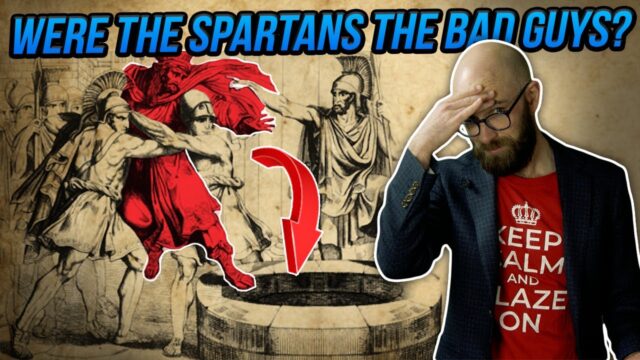“Beyond Glory and Guts: Unveiling the Untold Secrets of the Spartan 300”
Whatever the case, Xerxes had the bridges rebuilt and this time was able to move his forces into Thrace, estimated to be around 100,000-200,000 strong, a staggeringly large army for the era. Noteworthy here, though is that Herodotus famously puts Xerxes’ army into the millions, but historians generally discount this number as an exaggeration. Whatever the case there, in 480 Xerxes marched with his people into Thrace. The Persian genius for logistics and planning worked out and Xerxes had little trouble feeding and watering his forces and their animals all the way into central Greece with the help of his Macedonian and Thracian allies.
This brings us back to the Spartans, who were ruled by a mix of democracy, theocracy, and dual monarchy. The rule of the two kings was supported by two democratic bodies, ensuring a balance of power between the Spartans and their kings. One of these ruling groups was the Ephors, which the movie 300 was not very kind towards. In truth, the Ephors were not mutant and debauched priests, but a group of five elected officials cycled amongst the citizenry. On the other end, the famous Leonidas was one of the dual kings.
We’ve already discussed in great detail how the Spartan society functioned in our video How Did One Actually Become a Spartan Warrior?, but what is important to note in this one is that Spartans were a very hierarchical society based on the social organization of the mythical king, Lycurgus. The only true citizens were the Spartiates; these were the ruling class and the leaders of Sparta’s military. They were isolated to the city of Sparta, whereas the region itself was actually called Laconia. As for this ruling class, as alluded to, they lived a life of leisure geared towards athletics and combat training, so they were always ready for battle. Below them were the majority of Laconians, the free Dwellers-Around, and the slave Helots. Both of these groups also saw combat alongside the Spartiates, though little spoken of today in popular media. As also previously alluded to, it is noteworthy that the Helots were treated much more harshly by the Spartiates than most other Greeks tended to treat their slaves, possibly even having a festival where young Spartiates would sneak off into the night to murder Helots.











